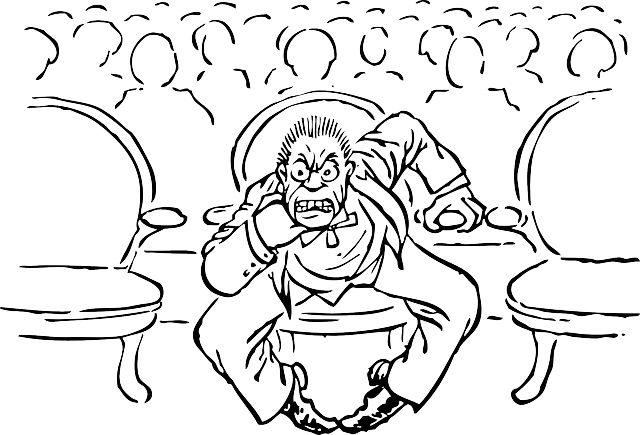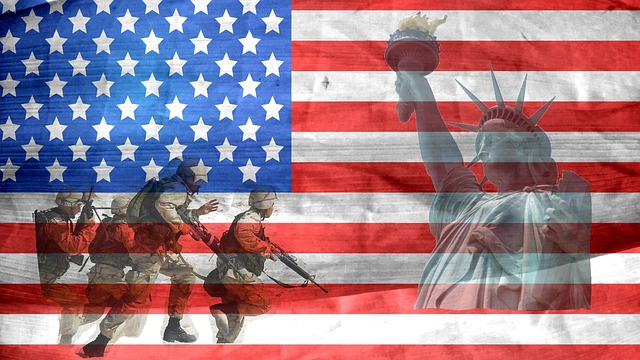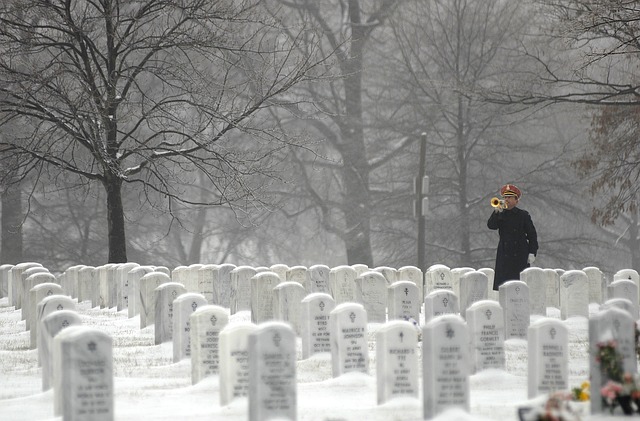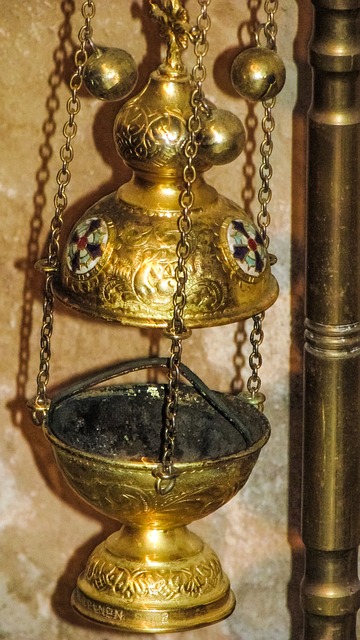
9 He answered, “I am a Hebrew and I worship the Lord, the God of heaven, who made the sea and the dry land.” – Jonah 1:9
Unfriendly Fire
When we think of the Prophets of God, we think of men we hold in high esteem such as Isaiah, Jeremiah, Ezekiel, etc. Men who boldly proclaimed God’s Word under trying circumstances. Men who often preached unpopular messages which were met with vehemence and violence. Because of their obedience to God’s calling we like to put these men up on a pedestal. Although we don’t venerate them to the extent of worship, we “exalt” them for their faithfulness to God.
And then there is Jonah, in a class perhaps by himself. While we respect all of his peers, we riddle Jonah with bullet holes, shooting him up every time we reference him. From the theologians in the classroom to the preachers behind the pulpits to the casual pew warmer, Jonah is fair game. He is an easy target. I must confess, I have taken my shots at him as well.
While it is easy to focus on Jonah’s obvious weaknesses, it might be wise to glean from some of his strengths. Looking at the Book of Jonah in it’s historical context while setting aside our preconceived ideas might help. In other words, we should stop shooting and lay down our weapons for a while. Or as Jesus would remind us, “Let him who is without sin among you be the first to throw a stone…” – John 8:7b
Jonah Background
We do not know a lot about Jonah outside of the Book that bears his name, which means “dove”. The first verse of the Book of Jonah tells us that he was the son of Amittai and nothing more. Rather, it immediately records the commission of Jonah to go to Nineveh and “call out against it”.
We are told in Scriptures that Jonah was a prophet and servant in Israel during the reign of the evil King Jeroboam II, who reigned between 792-753 B.C.. Despite the wickedness of Jeroboam II, he did restore the borders of Israel because of the faithful ministry of Jonah. In addition we are told he was from Gath-hepher, a small border town in Israel that is also referred to in Joshua chapter 19.
24 And he did what was evil in the sight of the Lord. He did not depart from all the sins of Jeroboam the son of Nebat, which he made Israel to sin. 25 He restored the border of Israel from Lebo-hamath as far as the Sea of the Arabah, according to the word of the Lord, the God of Israel, which he spoke by his servant Jonah the son of Amittai, the prophet, who was from Gath-hepher. – 2 Kings 14:24-25
Nineveh Background
We know from the Book of Genesis, that Nineveh was founded by the mighty hunter Nimrod shortly after the flood.
9 He was a mighty hunter before the Lord. Therefore it is said, “Like Nimrod a mighty hunter before the Lord.” 10 The beginning of his kingdom was Babel, Erech, Accad, and Calneh, in the land of Shinar. 11 From that land he went into Assyria and built Nineveh… – Genesis 10:9-11a
Nineveh was the capital of Assyria and rose to power around 900 B.C., which in time would become the bitter enemy of Israel and begin a systematic process of conquering them. The Assyrians were known to be extremely cruel and brutal with a reputation for skinning alive their enemies. Perhaps this is what the Prophet Nahum was alluding to when he compared the Assyrians with lions tearing and feeding on the nations (Nahum 2:11-13).
Pick Your Poison
Imagine you are driving down a road with your child riding along. As you are driving an oncoming car intentionally swerves at you. While avoiding the oncoming car your vehicle rolls and your child is thrown out. Able to exit your car under your own strength you see that the other vehicle has hit a tree. Not pleasant I know but bear with me.
The first person to arrive on the scene of the accident happens to be a doctor. Your injuries are not life threatening but after looking at your child and the person that ran you off the road, the doctor determines that neither will live without his immediate attention. Who do you want the doctor to save, your child or your “enemy”?
I think this gives us a glimpse of Jonah’s decision process. God’s judgment is looming over Nineveh. If Jonah takes God’s warning to them and they repent, His beloved Israel may be destroyed by Assyria. If he runs and Nineveh is not warned and therefore destroyed, his people may be saved.
I am not condoning disobeying God, but in fairness we might want to think twice before we shoot at Jonah for fleeing in the opposite direction of Nineveh. The thought of seeing my loved one skinned alive might tend to be a powerful motivator.
Throw Me
While the ship that Jonah had boarded for Tarshish was being storm tossed, Jonah slept. In contrast to Jonah, the mariners on board feared for their lives. They were in a state of panic trying to appease their gods in hopes that the storm might subside. While their gods were helpless, Jonah’s God revealed to them through lots, that Jonah himself was the cause of their “evil”.
When the mariners questioned Jonah as to his identity, he gave the response quoted above. Specifically, he is a Hebrew who worships the True God who is sovereign over sea and land. While the others on board feared for their lives, Jonah bravely told them to throw him into the troubled waters. He was willing to die if necessary to save them. He was willing to die to save his fellow Hebrews. But he isn’t the only person in the Bible who loves his people so much. Remember Paul’s shocking words?
3 For I could wish that I myself were accursed and cut off from Christ for the sake of my brothers, my kinsmen according to the flesh. – Romans 9:3
Perhaps we don’t understand Jonah because we don’t love so deeply and so selflessly. Such a love could certainly influence our behavior.
Save Me
Once inside the belly of the fish, Jonah learned a valuable lesson, no one can escape the presence of the Lord.
7 Where shall I go from your Spirit?
Or where shall I flee from your presence?
8 If I ascend to heaven, you are there!
If I make my bed in Sheol, you are there!
9 If I take the wings of the morning
and dwell in the uttermost parts of the sea,
10 even there your hand shall lead me,
and your right hand shall hold me. – Psalm 139:7-10
Jonah’s attempt to save his people was foiled by his Sovereign God. Humbled, Jonah offered a beautiful prayer of deliverance to his omnipresent God.
“I called out to the Lord, out of my distress,
and he answered me;
out of the belly of Sheol I cried,
and you heard my voice.
3 For you cast me into the deep,
into the heart of the seas,
and the flood surrounded me;
all your waves and your billows
passed over me.
4 Then I said, ‘I am driven away
from your sight;
yet I shall again look
upon your holy temple.’
5 The waters closed in over me to take my life;
the deep surrounded me;
weeds were wrapped about my head
6 at the roots of the mountains.
I went down to the land
whose bars closed upon me forever;
yet you brought up my life from the pit,
O Lord my God.
7 When my life was fainting away,
I remembered the Lord,
and my prayer came to you,
into your holy temple.
8 Those who pay regard to vain idols
forsake their hope of steadfast love.
9 But I with the voice of thanksgiving
will sacrifice to you;
what I have vowed I will pay.
Salvation belongs to the Lord!” – Jonah 2:2-9
Jonah’s prayer for deliverance was answered. Not only was Jonah’s life spared, but God gave him a second opportunity to take His Word of warning to Nineveh. Although still torn by his patriotic love of Israel, Jonah obeyed.
A Jealous Love
Although unhappy about his task, Jonah walked among his enemies and warned them of God’s judgment. Amazingly, these cruel people repented; en masse. Much to Jonahs disappointment, but not to his surprise.
I knew that you are a gracious God and merciful, slow to anger and abounding in steadfast love, and relenting from disaster. – Jonah 4:2
The wrath of God against Nineveh would be stayed, and the threat of Assyria’s wrath against Israel would remain. Jonah’s reaction, as I have mentioned is well documented, and often ridiculed.
Jonah was angry. He was an unwilling tool wielded by a merciful God. But as we learn from Habakkuk, God sometimes uses the most unlikely tools to carry out His will and reach His people. Jonah and Paul are not the only ones harboring a jealous love. As Habakkuk learned, God is willing to use a wicked people to “discipline” His chosen. Despite Josiah’s efforts, Judah was still desperately wicked. Unwilling to repent more than superficially, God warns Habakkuk that He is going to use the Babylonians to punish them. God’s love for His children is so great that He cannot allow them to continue living in wickedness.
Jonah knew that God was merciful, slow to anger and abounding in steadfast love… Jonah was heartbroken, because despite numerous prophets and and years of warnings, his people remained heard hearted and obstinate. Unwilling to repent. Their unresponsiveness to the pleas of God’s love and mercy would be shamed by the repentance of their heathen enemies. And Jonah was an “accomplice”.
Unlimited Mercy
Like you and I, Jonah was far from perfect. But despite his weaknesses, there are lessons we can learn from him. More importantly, there are lessons we can learn from his experience with our sovereign God. Our God who can extend His mercy to our loved ones and our enemies without exhausting His supply!
Despite his lip service to and experience with the mercy of God, he was ignorant of it’s infinite depth. He wanted God’s mercy for himself and his people but not his enemies. Because of his love for his people and his desire for their preservation he wanted to “limit” the mercy of God. A danger Christ warned us about.
The mistake that Jonah made was also made by the older brother in Jesus’ parable of the prodigal son. When the father extended his mercy to the returning prodigal, his older brother was indignant. Why lavish such love on someone like him?
Jesus taught a similar lesson in the parable of the laborers in the vineyard. Although hired at different times of the day, each of the workers were paid the same amount. Those that toiled the longest begrudged the owner for his generosity. Despite receiving what they agreed to, they were upset with the employer for what he paid the other workers. Like Jonah, they wanted to “limit” his mercy. Which will never happen.
Jonah called out to the Lord in his distress, and in his abounding mercy God saved him. Just like you and I.
“I will have mercy on whom I have mercy, and I will have compassion on whom I have compassion.” – Romans 9:15




 Rings
Rings



